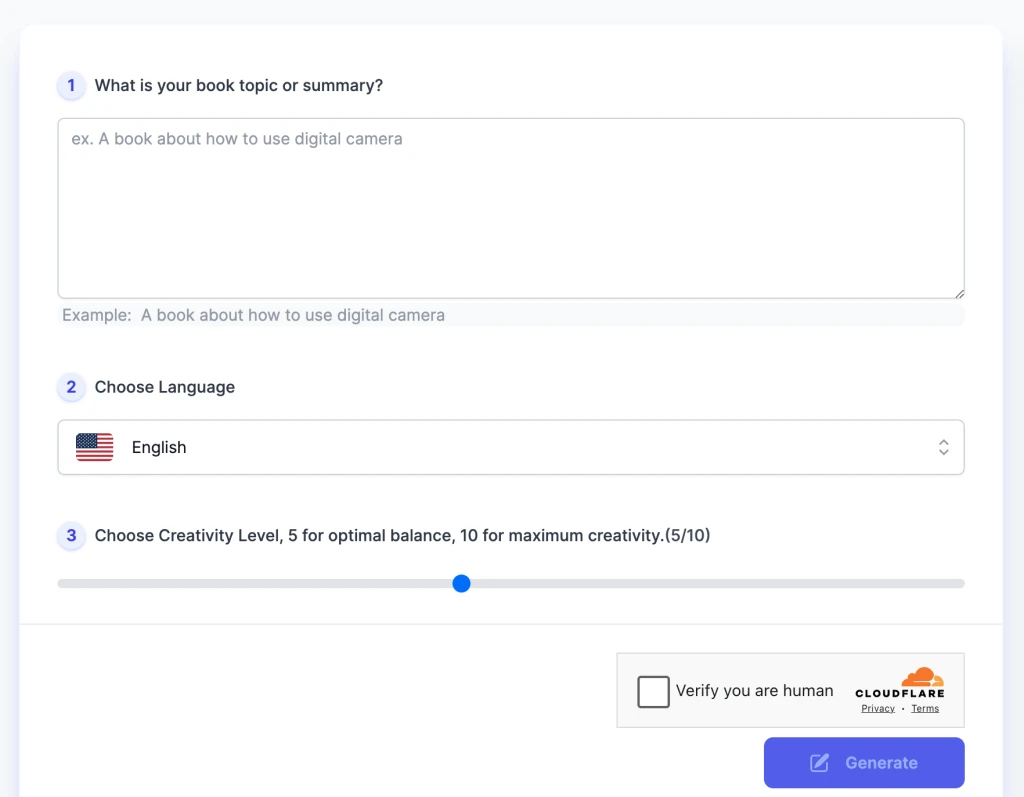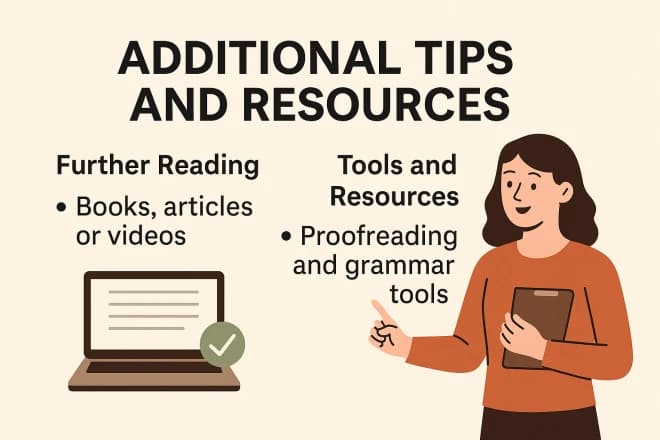Unlock Insights: Find the Answers You Seek on Our Blog
Discover Funny Book Titles: Your Guide to Literary Laughter
By Evelyn Sterling
Have you ever found yourself laughing at a book title while wandering in a bookstore or scrolling online? Funny book titles have a special charm. They act like a wink from the author, hinting at the fun waiting inside the book. These titles catch your eye, offering something unique amid more serious books. They’re not just for a quick laugh; they create a lasting memory.
In this post, we’ll talk about why funny book titles are so powerful. They’re more than just eye-catchers; they capture the book’s spirit.
The Art of Crafting Funny Book Titles
Creating a book title that is both humorous and engaging is an art form that requires a delicate balance between wit and relevance. At the heart of many memorable funny book titles are wordplay, puns, and cultural references. These elements, when cleverly combined, can produce a title that not only catches the eye but also encapsulates the essence of the book’s content in a humorous light.
Wordplay and Puns: The clever use of wordplay and puns can turn an ordinary title into an extraordinary one. By playing with the meanings of words or phrases, authors can create titles that are not only funny but also intriguing. Puns, in particular, offer a double entendre that can engage readers by making them think and laugh at the same time. For instance, a cookbook might playfully be titled “Thyme of Your Life,” using a herb’s name in place of “time” to add a dash of humor while hinting at the book’s content.
Cultural References: Incorporating cultural references into a book title can make it instantly recognizable and relatable, adding another layer of humor. This could be a nod to popular movies, famous quotes, or historical events, tailored in a way that winks at the audience with shared knowledge. However, the key is to ensure these references are accessible and not so niche that they alienate potential readers.
Hinting at the Book’s Content or Theme: The most effective funny titles are those that use humor to reflect the book’s content or theme. This requires a deep understanding of the book’s material and the creativity to distill its essence into a few catchy words. Whether it’s a light-hearted romance novel with a title that pokes fun at love’s complexities or a dry-witted business book that makes a jest of the corporate world, the title should serve as a humorous prelude to the content.
Balancing Humor and Relevance: While humor is the main ingredient, too much of it without clear relevance to the book’s content can confuse or mislead readers. The challenge for authors is to strike the perfect balance, ensuring the title is not only funny but also a true reflection of the book’s essence. It’s about finding that sweet spot where humor enhances the appeal of the book without overshadowing its subject matter.
In crafting funny book titles, authors walk a tightrope between levity and clarity. It’s an intricate dance of words where the right amount of humor can turn a book into a standout piece, remembered and cherished for its clever title as much as for its content.
Iconic Funny Book Titles
Humor can be found across all genres of literature, from the darkest corners of dystopian fiction to the reflective surfaces of memoirs. Here, we delve into some of the most unforgettable and hilariously titled books, showcasing the wide range of creativity authors possess when it comes to naming their works.
“Pride and Prejudice and Zombies” by Seth Grahame-Smith: This title immediately draws attention by combining the classic elegance of Jane Austen’s “Pride and Prejudice” with the utterly unexpected twist of zombies. Grahame-Smith’s novel is a perfect example of how adding an element of absurdity to a well-known story can create an intriguing and humorous title. The book itself mirrors this juxtaposition, blending manners and man-eating into an unforgettable narrative.
“Are You There, Vodka? It’s Me, Chelsea” by Chelsea Handler: Chelsea Handler’s play on the title of Judy Blume’s classic, “Are You There God? It’s Me, Margaret,” instantly signals a comedic and irreverent tone. Handler’s memoir uses humor to explore personal stories and societal observations, and the title perfectly encapsulates her direct, no-holds-barred approach to comedy and life’s absurdities.
“We Are Never Meeting in Real Life” by Samantha Irby: Samantha Irby’s collection of essays features a title that is both humorous and a tad melancholic, capturing the essence of modern relationships and interactions. It reflects Irby’s sharp wit and her ability to find humor in the awkward, the embarrassing, and the all-too-relatable moments of life. The book navigates through a variety of topics with sincerity and laughter, making the title a perfect overture to the symphony of stories within.
The power of humor in literature is often encapsulated in its titles, serving not only to entice a reader’s curiosity but also to hint at the unique blend of themes and stories that lie within each book.

Tips for Naming Your Book with Humor
Injecting humor into your book title is not just about getting a quick laugh. It’s about making a lasting impression on your potential readers, ensuring your book stands out in a crowded marketplace. Here are some pointers to help you craft a title that’s both funny and fitting:
1. Know Your Audience
The first step in creating a humorous title is understanding who you’re writing for. Different types of humor appeal to different demographics, and what’s hilarious to one group might fall flat with another. Consider the interests, age range, and cultural background of your target audience. A well-aimed humorous title can make your book feel like it’s speaking directly to the reader, creating an instant connection.
2. The Element of Surprise
Humor often lies in the unexpected. A title that takes a familiar phrase and twists it in an unforeseen way can be both surprising and delightful. Look for opportunities to subvert clichés or blend unrelated concepts, much like “Pride and Prejudice and Zombies” does. The juxtaposition of contrasting ideas can spark curiosity and amusement even before the book is opened.
3. Play with Words
Puns, wordplay, and double entendres are tools of the trade in crafting humorous titles. They can add layers of meaning and entertainment value to your title. Don’t shy away from playing with words, but remember, clarity is key. A pun that’s too obscure might not hit its mark. Try to strike a balance between cleverness and accessibility.
4. Brainstorming Techniques
- Freewriting: Set aside time to jot down any and all ideas that come to mind, no matter how silly or outlandish they may seem. This can help you break out of conventional thinking and stumble upon a gem.
- Word Association: Start with a word central to your book’s theme and list as many related words, phrases, or idioms as you can think of. This can lead to unexpected and humorous connections.
- Feedback Loop: Share your best ideas with friends, family, or your target audience. Often, it’s the outside perspective that can spot the potential in a title you might be unsure about.
5. Thematic Consistency
While humor is important, your title should also reflect the tone and content of your book. A funny title on a serious non-fiction book might mislead readers and lead to disappointment. Ensure that your humorous title aligns with the themes and message of your work, enhancing rather than detracting from the reader’s expectations.
Remember, a title is often the first impression a reader will have of your book. A well-crafted, humorous title not only promises entertainment but also invites the reader into a unique literary experience. With these tips, you can hone in on a title that captures the essence of your book while also drawing a smile or a laugh from potential readers.
Use AI Book Title Generator to Have Funny Book Titles
What Is AI Book Title Generator?
AI Book Title Generator is an online AI tool. It leverages artificial intelligence to craft book titles based on keywords, themes, or genres you input. It’s a fusion of machine learning algorithms and natural language processing techniques designed to simulate creativity and generate a plethora of title options for authors, publishers, and anyone looking for inspiration.
For authors seeking funny book titles, the AI generator can be particularly useful. By inputting specific keywords related to your book’s theme or content and indicating a preference for humor, the AI can churn out title options that blend relevance with levity. It’s a way to bypass the initial block of title brainstorming and jump straight to refining and perfecting your book’s name with a touch of AI-assisted creativity.
How To Use It: Step-by- Step Guide

Step 1: Define Your Book’s Topic
- Begin by entering a brief description of your book in the first text box. This summary should capture the essence of your book’s content. For example, if your book is about mastering the art of baking, you might write “A comprehensive guide to becoming a proficient home baker.”
Step 2: Choose Your Language
- Select the language in which you want your book title to be generated. Click on the dropdown menu and choose from the available options. For most users, this will be English.
Step 3: Adjust Creativity Level
- Move the slider to set the desired level of creativity for your book title. If you prefer a more straightforward title, keep the slider towards the lower end. For more inventive and quirky titles, slide towards the higher end. The middle setting, typically around 5, offers a balance between the two.
Step 4: Human Verification
- Before proceeding, complete any necessary human verification step , checking a box that says “Verify you are human” or completing a CAPTCHA. This is a security measure to prevent automated bots from using the tool.
Step 5: Generate Your Title
- Once you’ve filled in all the fields and completed the human verification, click the “Generate” button. The AI will process your input and provide you with a book title based on the information you provided.
Step 6: Review and Select
- After the generator presents you with a title, review it to see if it meets your needs. If you’re not satisfied, you can adjust your inputs and try again. Sometimes, it might take a few attempts to land the perfect title.
Additional Tip:
- Keep a notepad or document open to copy and save all the title options you like. This will allow you to ponder over them and decide which one fits your book the best.
- Remember, the AI Book Title Generator is a tool to spark creativity and give you ideas. It’s always good to fine-tune the suggested titles or use them as inspiration to come up with your own unique title.
The Impact of a Funny Title
A book’s title can often be a decisive factor in its initial success and enduring popularity. When it comes to funny titles, their impact is multifaceted, influencing everything from a reader’s first impression to the book’s viral potential on social media.
Influence on Book Reception and Marketing
- Stand-Out Factor: In a sea of traditionally named books, a funny title acts as a hook that can make a book stand out. It can be the difference between someone passing by and someone stopping to take a closer look.
- Branding: A humorous title contributes to the book’s brand identity. It can make marketing more engaging and relatable, and provide an easy talking point for interviews and promotional content.
Reader Engagement and Social Media Virality
- Shareability: Funny titles are inherently shareable. They’re easy to remember and can create a buzz simply because people enjoy sharing a good laugh.
- Engagement: Titles with humor tend to provoke reactions, whether it’s a chuckle or a full-on guffaw. This engagement can transition into lively discussions, book club selections, and community bonding over the content.
- Hashtag Potential: A cleverly worded book title can become a trending hashtag, further driving interest and sales.
Challenges and Considerations
- Cultural Sensitivity: Humor can be culturally specific, and what’s funny in one context might be offensive in another. Authors must navigate these waters carefully to avoid alienating potential readers.
- Timeless vs. Trendy: Humor can be ephemeral. What’s hilarious now might not age well. Authors must decide whether to aim for timeless wit or ride the wave of current trends.
- Genre Expectations: Not all genres lend themselves easily to humor, and even within more lighthearted genres, a funny title might set false expectations about the book’s content.
In conclusion, while a funny title has the potential to greatly enhance the appeal and reach of a book, it requires careful thought and strategy to be effective. The best humorous titles resonate with readers, spark conversations, and remain sensitive to broader social and cultural nuances. They manage to stay relevant over time and maintain the delicate balance between humor and substance.
AI Tools Categories
Browse all AI tools by category
All AI Tools
229Amazon
5AI Writing Generator
85Article & Content Writing
35Branding & Identity
54Content Generation
170Creative Ideas
32Educational Resources
34E-commerce
14Etsy
6Events & Celebrations
13Facebook
6Gaming & Fun
5Instagram
3Lifestyle & Personal
8LinkedIn
6Marketing & SEO
40Poem & Lyrics Writing
19Professional Documents
31Social Media
44Story & Book Writing
49Text Effects
14TikTok
7Twitter
3Writing Enhancement
36YouTube
11
Highly rated and most popular AI tools curated by our experts
Recently added AI tools that are gaining traction
- AI Post Generator

- AI Bullet Point Generator

- AI Discussion Post Generator

- AI 2 Weeks Notice Letter Generator

- AI Content Creation Ideas Generator

- AI Radio Ad Script Generator

- AI Podcast Script Generator

- AI Resume Objective Generator

- AI Resume Headline Generator

- AI Password Generator

- AI Snapchat Caption Generator

- AI Snapchat Username Generator

- AI Pinterest Board Name Generator

- AI LinkedIn Experience Description Generator

- AI Twitter Hashtag Generator

- AI YouTube Short Idea Generator

we prioritize displaying the latest content closely related to the current blog post.







